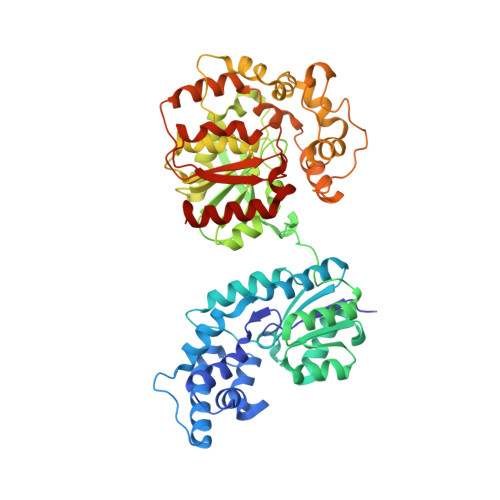Successful Generation of Structural Information for Fragment-Based Drug Discovery.
Oster, L., Tapani, S., Xue, Y., Kack, H.(2015) Drug Discov Today 20: 1104
- PubMed: 25931264
- DOI: https://doi.org/10.1016/j.drudis.2015.04.005
- Primary Citation of Related Structures:
5AHX, 5AI0, 5AI4, 5AI5, 5AI6, 5AI8, 5AI9, 5AIA, 5AIB, 5AIC, 5AK3, 5AK4, 5AK5, 5AK6, 5AKE, 5AKG, 5AKH, 5AKI, 5AKJ, 5AKK, 5AKL, 5AKX, 5AKY, 5AKZ, 5ALD, 5ALE, 5ALF, 5ALG, 5ALH, 5ALI, 5ALJ, 5ALK, 5ALL, 5ALM, 5ALN, 5ALO, 5ALP, 5ALQ, 5ALR, 5ALS, 5ALT, 5ALU, 5ALV, 5ALW, 5ALX, 5ALY, 5ALZ, 5AM0, 5AM1, 5AM2 - PubMed Abstract:
Fragment-based drug discovery relies upon structural information for efficient compound progression, yet it is often challenging to generate structures with bound fragments. A summary of recent literature reveals that a wide repertoire of experimental procedures is employed to generate ligand-bound crystal structures successfully. We share in-house experience from setting up and executing fragment crystallography in a project that resulted in 55 complex structures. The ligands span five orders of magnitude in affinity and the resulting structures are made available to be of use, for example, for development of computational methods. Analysis of the results revealed that ligand properties such as potency, ligand efficiency (LE) and, to some degree, clogP influence the success of complex structure generation.
Organizational Affiliation:
Structure and Biophysics, Discovery Sciences, Innovative Medicines, AstraZeneca R&D, Mölndal, Sweden.
















